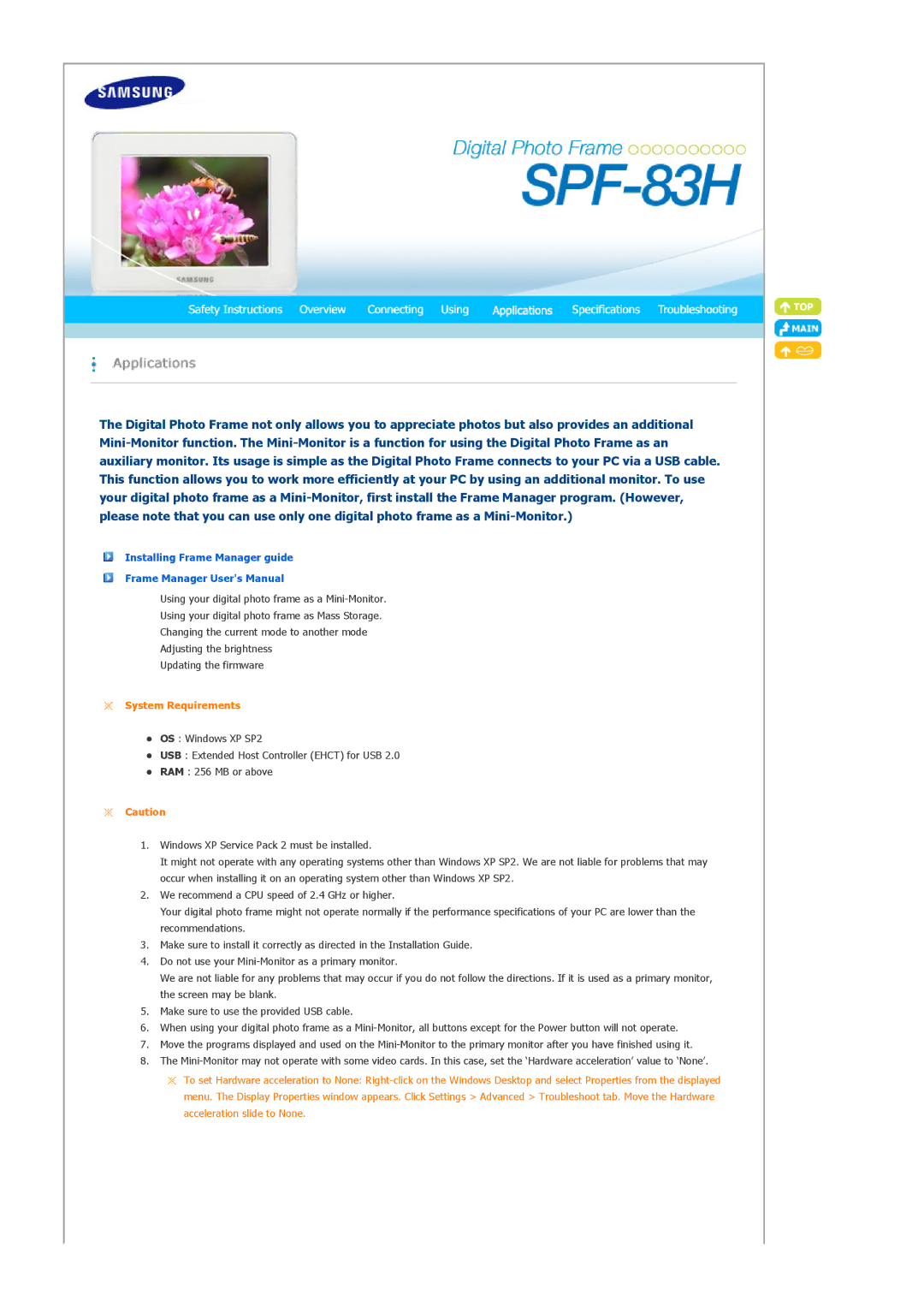
The Digital Photo Frame not only allows you to appreciate photos but also provides an additional
Installing Frame Manager guide
Frame Manager User's Manual
Using your digital photo frame as a
Using your digital photo frame as Mass Storage.
Changing the current mode to another mode
Adjusting the brightness
Updating the firmware
System Requirements
zOS : Windows XP SP2
zUSB : Extended Host Controller (EHCT) for USB 2.0
zRAM : 256 MB or above
Caution
1.Windows XP Service Pack 2 must be installed.
It might not operate with any operating systems other than Windows XP SP2. We are not liable for problems that may occur when installing it on an operating system other than Windows XP SP2.
2.We recommend a CPU speed of 2.4 GHz or higher.
Your digital photo frame might not operate normally if the performance specifications of your PC are lower than the recommendations.
3.Make sure to install it correctly as directed in the Installation Guide.
4.Do not use your
We are not liable for any problems that may occur if you do not follow the directions. If it is used as a primary monitor, the screen may be blank.
5.Make sure to use the provided USB cable.
6.When using your digital photo frame as a
7.Move the programs displayed and used on the
8.The
![]() To set Hardware acceleration to None:
To set Hardware acceleration to None:
